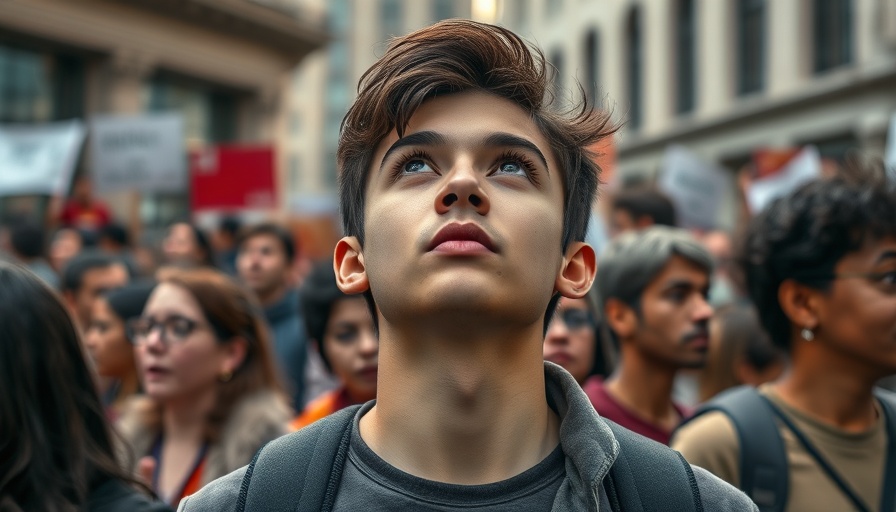
Introduction: The Legal Turmoil Surrounding Abrego Garcia
As legal battles unfold in the wake of controversial comments from government officials, Abrego Garcia's legal team is making headlines by seeking a gag order against key individuals, including Department of Homeland Security Secretary Kristi Noem. This move could significantly impact how public perception and legal proceedings intersect in a politically charged environment.
The Nature of the Charges and Political Implications
Abrego Garcia has been in the spotlight after facing smuggling charges since his return to the U.S., allegedly linked to his past affiliations with MS-13, a notorious gang. Garcia's lawyers argue that comments labeling him a 'monster' by public officials not only prejudice his case but also contribute to a broader narrative that fuels political accusations and polarization. This situation sheds light on important issues regarding the criminal justice system and the interplay between politics and legal proceedings.
The Gag Order: A Double-Edged Sword?
The request for a gag order poses intricate questions about free speech and the right to a fair trial. In a society where public opinion can heavily influence judicial outcomes, limiting communication could serve to protect a defendant's rights yet could also be construed as censorship. Garcia’s legal team contends that without such measures, their client may not receive a just trial due to the pervasive media coverage and public sentiment surrounding his case.
Historical Context and Background of Similar Cases
The intersection of immigration, criminal justice, and political rhetoric is not novel in the U.S. Political figures have historically used high-profile cases to advance agendas, fostering a culture where individuals can become symbols rather than subjects of the law. Previous cases, such as those involving other alleged gang members or controversial immigration figures, have highlighted the risks associated with pre-trial publicity.
Future Predictions: A Shifting Landscape for Immigration Policy?
The outcome of this case could potentially ripple through the broader immigration debate. Should the court grant the gag order, it could set a precedent that limits public comments on ongoing cases, particularly those involving immigration and security. Additionally, if Garcia is acquitted, it may cause further discussions about the treatment of immigrants in the justice system and the ramifications of politically charged rhetoric.
Public Sentiment and Social Implications
Public interest continues to rise as people weigh in on issues of immigration, crime, and justice. The political climate, especially with upcoming elections, amplifies debates over how authorities handle cases involving immigrants with criminal backgrounds. The perception of threats associated with immigration is strong, and more voices in support of civil rights and proper legal proceedings are emerging. This case is not just about one individual; it represents a larger dialogue about justice and the American identity.
Conclusion: The Call for Balanced Narratives
The legal situation surrounding Abrego Garcia illustrates the entangled nature of law, politics, and public opinion. It raises essential questions about how narratives are crafted and consumed, particularly concerning sensitive topics like immigration and crime. As the headlines develop, it’s crucial to remain informed and engaged with both the complexities of the legal system and the overarching implications of these trials on American society. Stay informed about the unfolding details in this pressing story.
 Add Element
Add Element  Add Row
Add Row 



Write A Comment